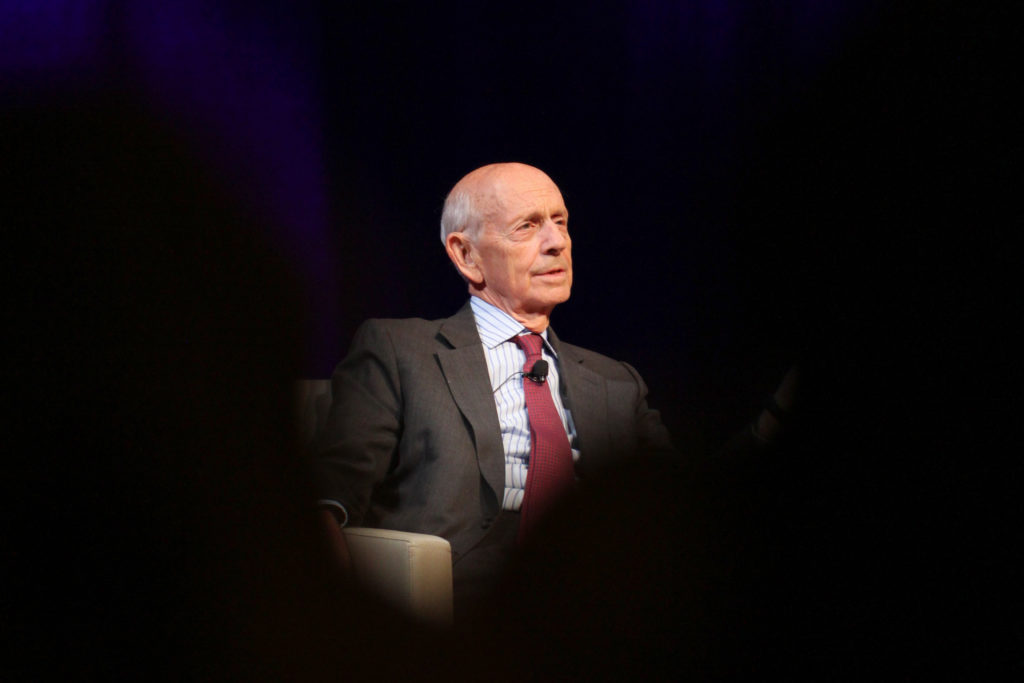Former Supreme Court Justice Stephen Breyer spoke about his early life at Lisner Auditorium Wednesday.
The retired justice and his brother, Charles Breyer, a senior district judge for the Northern District of California, said their experiences growing up in San Francisco together and in college introduced them to a diverse range of places and people from different backgrounds, which later shaped their outlook on life. GW Law hosted the event, which was moderated by Alan Morrison, associate dean for Public Interest and Public Service at GW Law, and was the first installment of a five-part series chronicling the arc of Justice Breyer’s career.
Justice Breyer said while living in San Francisco, being a part of the large and diverse city community influenced his upbringing.
“It is not conceivable to me that you could live your life without being a part of several communities that are trying to live together in a reasonable way,” Justice Breyer said.
Charles Breyer said their parents encouraged political awareness from a young age, detailing a story where his father would lift him up as a child so that he could operate the voting machine.
“Steve and I were raised in a family that was extraordinarily positive in the sense of participation in government,” Breyer said.
Breyer said his worldview shifted when he left San Francisco for college and became more exposed to the events of the world around him, like the assassination of President John F. Kennedy and the Kent State massacre, which he described as a “dose of reality.”
“All of this optimism that we had as children was tempered by the reality,” Breyer said.
Justice Breyer said there is a significant degree of luck in being appointed for positions like a federal judge because several candidates are qualified enough to receive the presidential appointment for each position.
“I say being appointed a federal judge is like lightning striking,” Breyer said. “And being appointed to the Supreme Court is like lightning striking twice in the same place.”
Breyer said when he talks to college students, they often ask him for advice on what to study to become a lawyer. He said college allows students to broaden their horizons by studying an array of topics that interest them rather than simply studying what they believe will make them good candidates for law school and other careers.
“You start learning a foreign language, you start reading some literature, you start really learning a little bit of history, and so forth, your eyes will open to experiences that go beyond your own life,” Breyer said.
The next installment of the five-part series, focusing on Justice Breyer’s experience at Harvard Law School, is scheduled for May 16.











